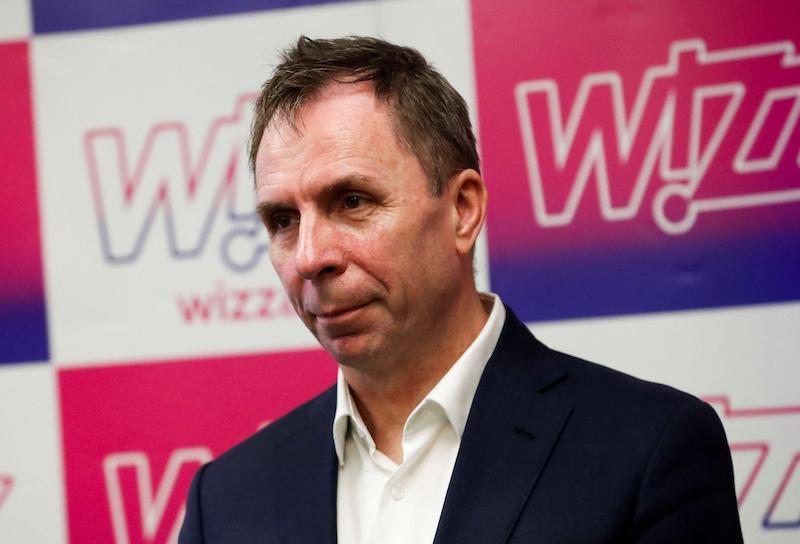
Wizz Air is planning to put India on its route map by connecting the subcontinent nonstop with services to the European Union once the Airbus A321XLR arrives in its fleet.
Speaking exclusively to Aviation Daily on April 13, Wizz Air CEO Jozsef Varadi said the most obvious plan is to begin flights to India through its Gulf subsidiary, Wizz Air Abu Dhabi, based on strong point-to-point demand between the UAE and India. Abu Dhabi would also become a connecting point to Europe for Wizz Air.
“Over the longer run, we would be interested in connecting India directly to the European network, especially when the A321XLR becomes available to us,” Varadi said.
Wizz Air has 47 A321XLRs on order. Airbus says it is confident about the certification timeline for the long-range variant, targeting entry-into-service in the second quarter of 2024.
Even though this plan cannot be executed in the short term, Varadi believes that Wizz Air could be a pioneer in bringing India closer to the EU as the ULCC looks east. In his view, Wizz Air is the logical operator of such services among the European carriers.
“I expect our first Airbus A321XLR toward the end of next year. The aircraft can do Delhi-London nonstop, for example ... not from the whole of India, [but] from some parts of it,” he said.
“To Pakistan, we are not flying yet, but we are in the process of getting permits,” Varadi added.
The fleet of Wizz Air Abu Dhabi, the joint venture between Hungary’s Wizz Air and Abu Dhabi state-owned holding ADQ, will be doubled from eight aircraft to 16 within the next 12 months.
In terms of the European market, Varadi expects the industry to reach roughly 95% of its pre-COVID capacity this summer, while Wizz Air will reach 160% capacity. “That means we are 60% bigger than before COVID. We are seeing a lot of demand for our product and services, but probably the industry doesn’t really see the same degree of demand,” Varadi said.
Wizz Air currently operates with load factors between 90% to 96% and yield is also improving, Varadi said.
However, the CEO expects the operating environment to be difficult this summer. “We are seeing a lot of social unrest affecting the industry,” Varadi said. “Also, the war in Ukraine keeps on going, which affects [air traffic control].”
Wizz Air itself has made significant investments to make its operations more robust. The ULCC doubled the number of people working in daily operations from 150 to 300, in a bid to improve its operations planning, maintenance control center, logistic department, and other functions.
Wizz Air also changed rostering patterns for its crews because they flew too much, exceeding the legal hourly limit last summer. “When Wizz Air suffered long delays last summer, crews ran out of time. So, we added more buffer to the system to avoid delay or cancellations of flights,” the CEO said. Also, more standby crews will be available and will be activated if something goes wrong.
Wizz Air will have five spare aircraft on reserve in the system compared to three aircraft last year. “We are much more robust. So far, so good. Even though it is difficult out there, we can do it better ourselves,” Varadi said. “We are talking here, probably, of an investment of around €100 million [$110.2 million] to offer reliable operations in Europe,” he said.
Wizz Air does not wet-lease aircraft because Varadi sees this as not fully controlled capacity. “It is the last resort of what we would do,” he said.
The Wizz Air fleet is growing from 180 aircraft to 200 this year. “We are taking roughly around 40 aircraft deliveries a year, an average of three aircraft every month,” he said.

